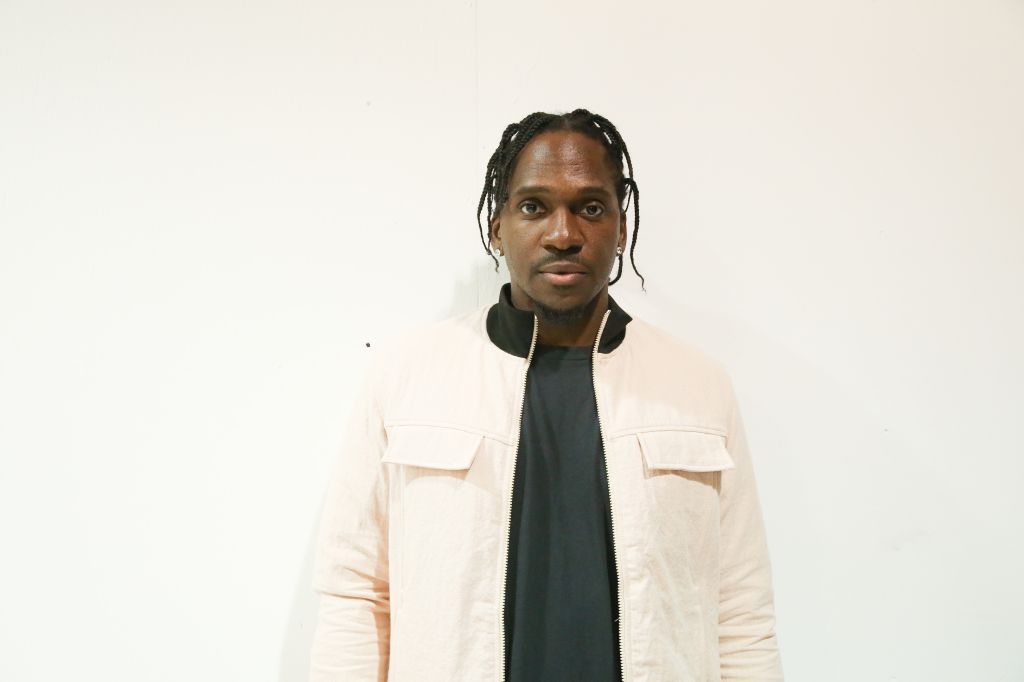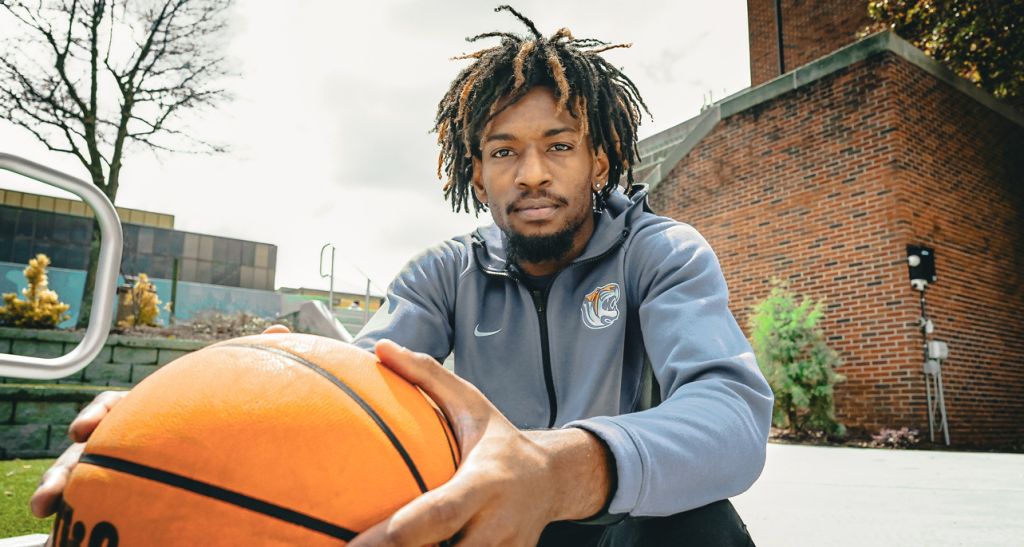
Source: Rob Kim / Getty
I want to say that Pusha T has found his voice on his latest effort, Daytona, but that would imply he hasn’t spent the last two decades rapping about coke and its many fulcrums. More so, though, Push’s music has always been, at its heart, obsessed with winning and working. Flitted through with bagging, pushing, wanting, desiring and having those desires capitulated. It’s the old American idea, that to have you must want, and to want you must be plugged into the great artifice of capitalist endeavor. I imagine the alchemy of drugs is similar to music; the creation of one thing from another, the product birthed out of underlying chemistry or talent.
Daytona is equally hardscrabble yet refreshingly short. Warhol raps shaved and cut with meditations on the fruit of one’s labor that clocks in at a robust 22 minutes. He’s doing what he does best here, spinning success as a kind of self-mythology, and it’s that mythology that we revel in Pusha’s vein of rap-as-hierarchy. It’s what people get excited about when they think of Push. What people get excited about when they think of Jay-Z. Both of them once soldiers in the belly of the beast, now overtaken with a life that features considerably less risk and far more braggadocio. It was, of course, obvious then that Push would give us the taught, no-frills rap album a lot of people have been clamoring for. Especially now that Kanye West is his Premo; his neo-Pharrell.
But winning has its consequences. Most of all the winning itself. On “Come Back Baby,” he spits, “They say don’t let money change you/That’s how we know, money ain’t you.” And I can’t help but think about his brother, Malice — rebirthed as No Malice. Life comes laced with metaphors, and it would be simple to draw a corollary between him and Push. Who is winning, I might ask? Is it the preacher or the pusher? There are those who would look at the life No Malice gave up as part of The Clipse and conclude he couldn’t follow through. That the pursuit of money, power et al. is worth the constant stress. No Malice would say hip-hop is the only art form that “eats its young.”
These mercurial notions of what it means to be Black in America, crushed between the pulpit and economics, are evident in Pusha T’s music.
These mercurial notions of what it means to be Black in America, crushed between the pulpit and economics, are evident in Pusha T’s music but more so for how he chooses to ignore them. He’s been an elite emcee, but it’s his No Malice, his “other” that is relegated to shadowy obscurity. For all his lyrical dexterity and intensity, in interviews, he comes off as contemplative and shy. He thinks deeply through his answers, aware of being viewed in abundance, unafraid yet compassionate of the interviewer. That sort of compassion is notably absent from his work, especially his most recent. It reveals an inkling of thought: that Pusha T knows what wins and is choosing to give us what we want. Now, most of all. To that end, he is no different from other pushers: Facebook, Donald Trump, Apple, etc.
What wins for Push, what people seem to like him best for, is a hyper-focus on the very act of making it. That, with guts, we too can be at the top of the pile. A lot of rap is about that, sure, but King Push does so adroitly through the prism of selling and re-upping. Namely, of commerce and its machinations. And we must ask ourselves if Pusha T still believes he’s pushing a lifestyle or if we simply don’t get what he’s trying to say without saying it. That these were just the choices, he saw and had to live with. And, maybe, that rap is narrative with multiple interpretations, even if what is being said seems relatively straight-forward. That is to say, I think Daytona is Pusha T whittling his life’s work down into a tincture. Its minimalism blossoms because of what he represents: Rap’s made man. Still, through all of this, we know almost nothing about him.

Source: Johnny Nunez / Getty
We do know a lot about No Malice. How he was witnessed to with a friend, who’d just gotten out of prison while that friend was still under house arrest. How, when The Clipse broke up, they were watching friends get popped left and right, leaving wives and daughters alone to fend for themselves. We also know one of the moments that led to their divergence was Pusha T nearly being late for a flight, and No Malice’s fretting over whether his brother, too, was handcuffed somewhere by the Feds, lying face down on someone’s floor. Then there’s the fact that their manager, Anthony Gonzalez, landed in prison for 32 years on drug trafficking charges.
They wouldn’t be the first set of siblings that had to be separated so both could live, propelled forward by mysterious telepathy that ends up being multiplicative and dangerous. It makes me wonder what Pusha T thinks winning really is, and what he thinks winning is for all of us. Especially his friend, Kanye West.
On Kanye’s verse, he wonders if a MAGA hat would allow him to slide through police checkpoints. He, too, makes allusions to winning, but his prism of late had been corporations: Nike, Adidas, Apple. Now, it’s the hallway of acceptance, some say of whiteness, that has been his most intimate predilection. But maybe, just maybe, winning and losing is a false dichotomy. Maybe we don’t have to eat our young. If that’s what Pusha T has been ignoring this long while, then Daytona is his loneliest work. He has found a way to completely eliminate all trace of doubt from this one. Any semblance of his shadow has been destroyed. I guess, maybe, the commercial finally won out.
















